Command Palette
Search for a command to run...
Huiyi Huiying Products Were Resold by Hackers? Official Response: Source Code and Customer Data Are Not Involved
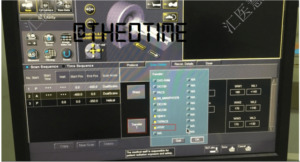
Since the COVID-19 pandemic began to spread around the world, hackers have become the most active group, and they are extremely arrogant. Authoritative organizations such as the WHO and CDC have been hacked one after another, and medical companies that assist in the diagnosis of COVID-19 have not been spared.
Since the beginning of this year, countries around the world have been disturbed by the new coronavirus, but hackers have taken the opportunity to commit crimes frequently and make money from disasters.
According to cybersecurity company Cyble,Medical imaging AI company Huiyi Huiying was hacked.The company's coronavirus testing technology data is being sold online by hackers for 4 bitcoins (approximately RMB 218,000).
Cyble has notified Huiyi Huiying of the data breach and said that "THE0TIME"The cyber hacker is suspected to be the main suspect in the incident.

The latest official response: source code and customer data are not involved
This afternoon, Huiyi Huiying responded to the incident. The company said that in mid-April, the company was attacked by hackers during the remote deployment of a public welfare training platform on an overseas public cloud.
But after analysis,The server that was attacked was actually a server used to train a public welfare platform, not Huiyi Huiying's AI algorithm platform and business production platform.
The hackers only stole training materials, no AI source code, and no customer data.
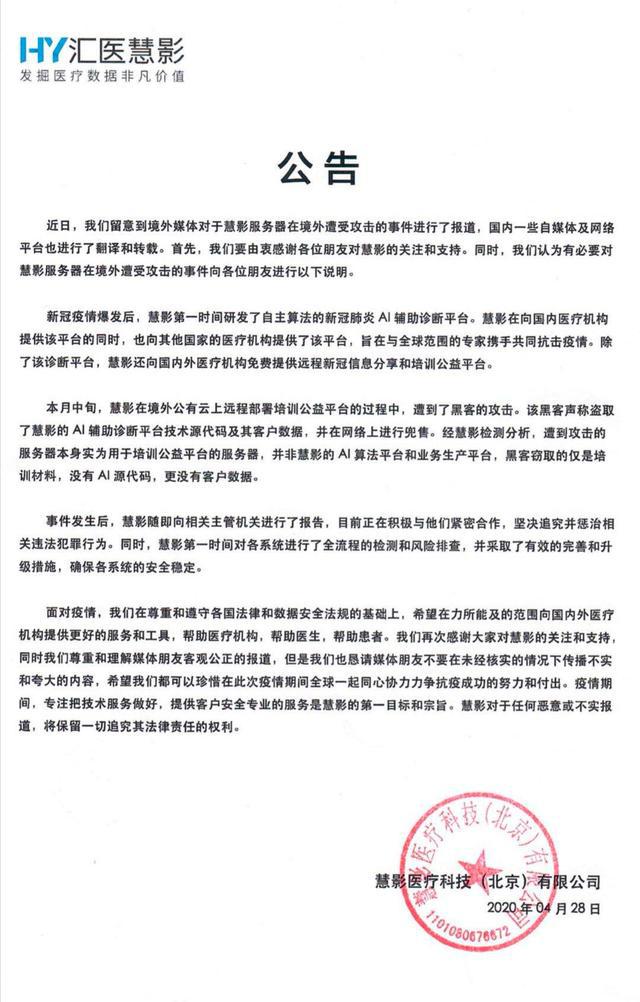
Provide remote COVID-19 information sharing and training
After the incident, the company has reported it to the relevant competent authorities and is working closely to resolutely investigate and punish related illegal and criminal acts.
Huiyi Huiying also stated that it had conducted full-process testing and risk screening of all systems as soon as possible, and had taken measures to improve and upgrade them.
The original price is 350,000 yuan/month, and it is sold in packages on the dark web for 210,000 yuan
According to Cyble, the technology stolen by the hacker this time was aA novel coronavirus detection system based on artificial intelligence technology.The technology can detect features suspected of pneumonia in CT chest DICOM images and identify symptoms of COVID-19 infection.
Huiyi Huiying's technical support is provided by Huawei.The current official price of the system is US$50,000 (approximately RMB 354,000) per month.The hacker packaged all the data and technical information of the system on the dark web.The listed price is RMB 218,000.
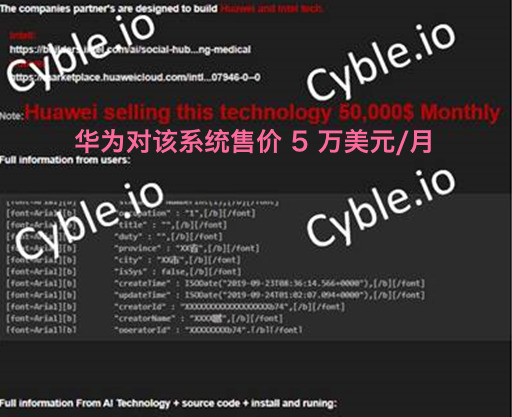
According to the hacker's public release, the data being sold includes: 150M of coronavirus laboratory research information, 1GB of technical information and its source code, and 1.5M of user data.
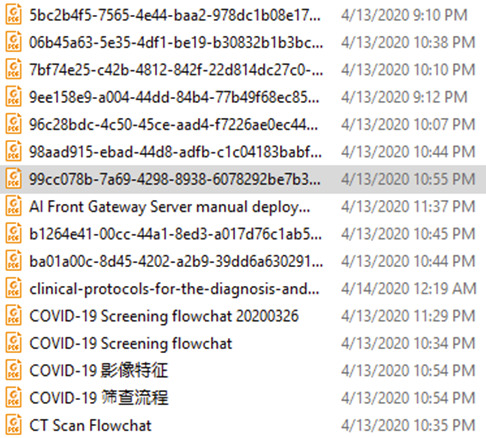
In addition, the hacker also released the following data samples, including userName, gender, mobile phone number, address, occupation, user name, passwordAnd other privacy information:
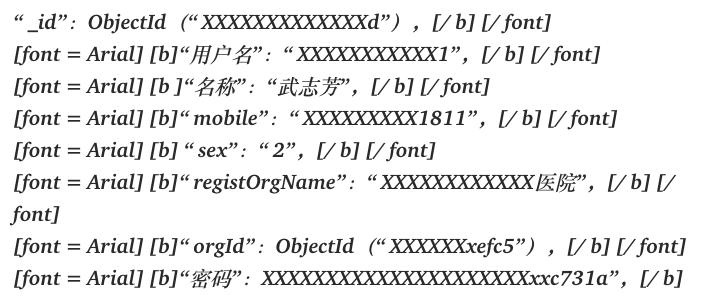
The system has been deployed in more than 30 hospitals at home and abroad
Previously, according to Huiyi Huiying, the company cooperated with domestic hospitals.Based on the CT imaging data of more than 4,000 confirmed cases of COVID-19, an optimized detection algorithm was developed.The accuracy rate is 96%.
The solution can be deployed in the cloud or on-site and is based on the computing power of Intel processors, combined with artificial intelligence neural network models, so image CT research reports can be quickly processed.

It is reported that the system can complete the diagnosis of more than 500 CT images within 24 seconds, and its analysis level is equivalent to that of a doctor with 4 years of experience.
This AI screening system has been deployed in more than 30 hospitals in more than 10 countries at home and abroad.Including the General Hospital of the People's Liberation Army of China, Peking Union Medical College Hospital, Coventry University Hospital in the UK, etc.
If the data leak is as the official response says, the impact will not be significant. But if it is not the case, the data and codes sold on the dark web will cause huge losses to the company and its partner medical institutions.
-- over--